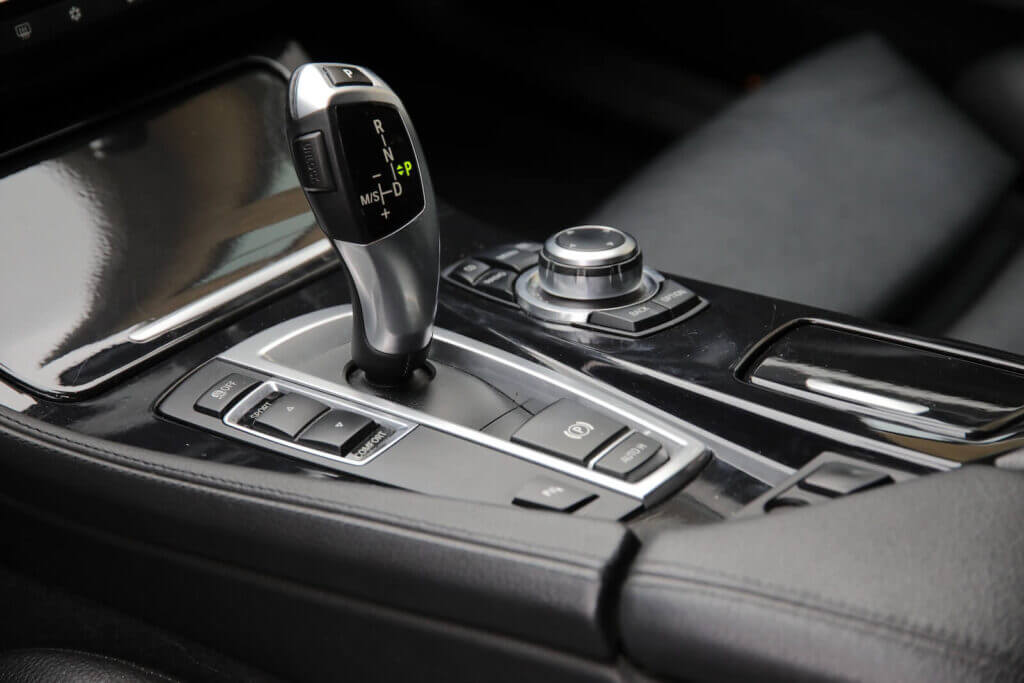For the average consumer looking to purchase a vehicle, transmission type is rarely a major consideration. Brand, vehicle type (SUV, sedan, truck, van, etc.), color, and trim package, all take precedence over one of the most important components of a vehicle, a transmission. Why is that? Last year, manual transmissions accounted for only 1.7% of new vehicle sales. Thirty years ago that same stat was 25%!
There has been, however, a tiny renaissance of vehicle purchases with manual transmissions. Although the 1.7% figure appears shockingly low, it is actually up from record lows of 0.9% and 1.2%, in 2021 and 2022, respectively. This statistically significant increase has been fueled by younger drivers in their 20s wanting to enjoy the classic geartrain their parents and grandparents raved about from their teens.
The uptick in vehicles with a manual gearbox is likely a fad. Automatic transmissions have grown their market share for numerous reasons. The next section will explore some of the benefits of each transmission type so consumers can make an informed purchase decision.
Manual Transmissions: Reliable and Old-School
Benefits:
- Vehicle control
- Fluid servicing
- Lower cost (questionable today?)
- Performance (questionable today?)
- Fuel economy (questionable today?)
- Fun

Reviewing the positive elements of a manual transmission takes some additional analysis. It is true that drivers can control vehicles with a manual transmission in a superior fashion than their automatic counterparts, but it takes an experienced driver to realize this benefit. Note that a manual variety requires not one, but two additional control components: a clutch pedal and a stick shift. This means that in a high-pressure situation, an inexperienced or average stick-shift driver may be at higher risk due to split-second decision-making and having to navigate more components.
It is true that manual transmission fluid tends to break down at a slower pace than automatic transmission fluid. Typically, it is gear oil (highly viscous and also used in differentials) or heavy-weight motor oil. It is still recommended to periodically change the fluid in a manual gearbox, and it is typically inexpensive because they typically hold less fluid than automatic varieties.
The cost was traditionally a major factor in buying a manual over an automatic, however, this has decreased if not reversed. Due to scarcity, some stick-shift vehicles are more expensive and are now ubiquitous. This is likely more common across premium and sports cars versus economic sedans where it remains more affordable to manufacture a manual gearbox due to significantly less componentry.
For decades, car enthusiasts boasted the value of manuals to achieve top performance. The argument was simple: you can maximize engine power in each gear before moving up to the next gear. It was a no-brainer, if you want top speed, get a manual. However, that argument only made sense against the classic three and four-speed transmissions with clunky shifts. There is a reason super-premium brands have even shifted (no pun intended) their best-performing vehicles to automatics. Advances in technology allowing for double-digit automatic transmissions have all but made the advantages of manual transmissions irrelevant.
On the opposite side of the spectrum, many responsible drivers preferred manual transmissions since it was believed to achieve better fuel economy. Again, this was due to the driver’s ability to control gearing and maintain the vehicle at lower RPMs. Compared to three and four-speed transmissions, this made sense. Like performance, this argument no longer holds true. The leading driver of innovation for automatic transmissions has been the goal to achieve better fuel economy.
The main benefit of a manual transmission for most drivers today is the fun factor. Assuming you’re not in traffic, there is a thrill an experienced driver achieves by shifting between gears and enjoying the feel of controlling your vehicle. This might not be relevant for one’s daily commute to the grocery store, but certainly, there’s a time and place for the drive itself to be the sole reason to jump into a vehicle to cruise.

Automatic Transmissions: The Clear Winner
Benefits:
- Availability
- Fuel economy
- Safety
- Performance
Consumers having options is important. Nearly every vehicle has an automatic version. In most cases, it is the only option. There are added complexities where for some vehicles you might choose between two different automatic transmissions. Certain years of Subaru hatchbacks had 2.5L engines with a continuously variable transmission (CVT) while the 3.6L engine boasted a 5EAT, traditional electronic automatic transmission. Looking at trucks, there were certain years a consumer could opt for a 6-speed or 8-speed automatic transmission made by GM. Ford added its own complexity by introducing the dual clutch transmission (PowerShift) that is found in many smaller passenger vehicles. Clearly, there has been an explosion of variations within the automatic category of transmissions.
Increasing the number of gears has allowed for tremendous improvements in fuel efficiency. Governments around the world, especially the West, have put stringent guidelines on emissions forcing manufacturers to find ways to lower the weight of vehicles and achieve more miles per gallon of petrol. Even though California is not a country, its 40 million consumers allow the state’s standards to further impact the decisions of manufacturers around the world.
The majority of drivers today do not know how to drive a stick shift. Even if they did, the ease of driving an automatic is unbeatable. Moreover, an emphasis on having two hands on the steering wheel to improve control is more attainable with an automatic. However, some critics note that automatic vehicles might encourage more texting and driving, or other activities such as eating because of the ease of use. Drivers should always be aware that regardless of the type of transmission a vehicle might be equipped with, all vehicles must be driven responsibly and can cause serious harm if there is a lack of focus from the driver.It would be impossible to think 50 years ago that automatic transmissions would be the standard of top performance. Yet it is true. A human cannot physically shift gears as quickly as an electronic computer impulse can sense and send a signal in milliseconds. The electronical complexity of vehicles continues to expand and it has had a profound impact on performance.
Verdict
Winner: Automatic Transmissions

It has not been a fair fight over the decades. Manufacturers have poured endless streams of money into improving the automatic transmission and even creating subvarieties such as the CVT and DCT. With fuel economy as a driving force and an easier ability for a young driver to safely get behind the wheel of an automatic, the writing was on the wall.
The Advanced Transmission Center team has been repairing and servicing BOTH automatic and manual transmissions for FIVE DECADES. Our teams are experienced with older models and are constantly training on the newest versions of drivetrains that hit the market. We have created our trademarked TrueTest Inspection that is FREE and helps vehicle owners better understand what is going on with their transmission, transfer case, and axles of differentials. Unlike dealerships or many independent repair shops, we are certified transmission specialists trained to fix vehicle drivetrain issues. You can reach out to either location that is most convenient for you.
| Advanced Transmission Center – Lakewood 1194 S. Pierce St. Lakewood, CO 80232 PHONE: (303) 922-4102 | Advanced Transmission Center – Westminster 3686 W. 72nd Ave. Westminster, CO 80030 PHONE: (303) 421-4140 |
Since 1986, our locations have been Geared for Customer Satisfaction.
Advanced Transmission Center is a Colorado-owned and operated auto repair shop with locations in Denver / Lakewood and Westminster. ATC specializes in driveline issues such as automatic transmission repair, four wheel drive repair, clutch replacement, differentials, manual transmissions and CVT. As Colorado's first AAA approved shop our goal is to provide accurate, timely service with exceptional customer satisfaction. All of our technicians are certified in the latest makes and models and we are one of the few transmission repair shops with a nationwide warranty.



 Free Customer Towing Service
Free Customer Towing Service  Free TrueTest™ Inspection
Free TrueTest™ Inspection  Fast Transmission Services
Fast Transmission Services  Comprehensive Warranty in Denver
Comprehensive Warranty in Denver 

























